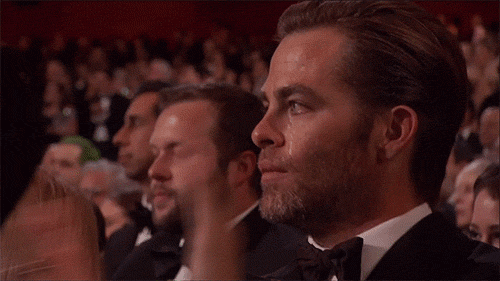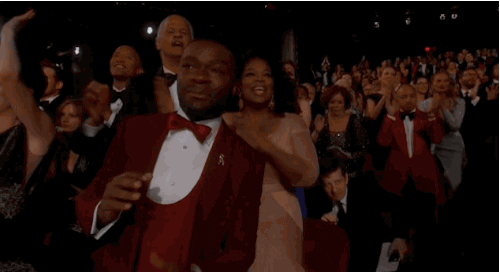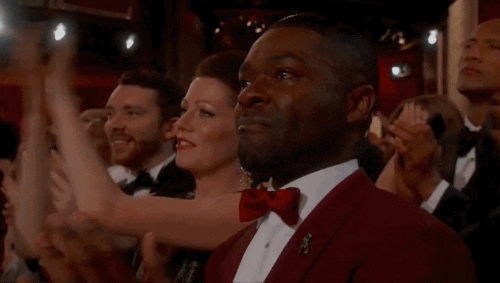Gymcelled
Genetically shackled to hell
★★★★★
- Joined
- Jul 15, 2019
- Posts
- 11,125
You see it all the time: some lonely male dares to briefly vent or complain online about how miserable his life is and everyone acts completely apathetic if not straight up aggressive. People will constantly downplay everything he's going through. Psychiatrists will just be confused and tell him nothing’s wrong with him, everything is in his head, that he can totally live with the issues he's having.
TURNS OUT MAYBE THEY SIMPLY CANNOT CARE ON A NEUROLOGICAL LEVEL
People don't care about the social hardships you go through. People will have 1000 times more empathy for a guy getting suckerpunched on worldstarthiphop than they’ll have for a social outcast and lifelong victim. It's pointless to expect sympathy/empathy from other people, don't waste your time pouring your heart out and expecting them to understand
People don’t care because they CANNOT care
Unless maybe they deeply love you to begin with

Social pain haunts you

"With regard to reliving pain, studies have shown that reliving socially painful experiences elicits more pain. Thus, subjects reported feeling more pain after reliving a prior episode of social pain than after reliving a prior episode of physical pain, even though there were no differences in the amount of pain experienced at the time the event originally occurred (‘initial pain’, see the figure, part a)"
People don't have empathy for the social pain of others

"Interestingly, when it comes to observing the pain of others (empathy), the reverse pattern is observed. When observing others in physical pain, participants show increased activity in affective pain-related neural regions, such as the dorsal anterior cingulate cortex (dACC) and the anterior insula (AI) (dACC activation shown in part b of the figure), whereas these same neural responses are not present when observing others in social pain (mentalizing regions, such as the dorsomedial prefrontal cortex, are present instead; see part c of the figure), unless the target of the social pain is a close friend (see part d of the figure)"
Physical-social pain overlap: being a loner/outcast will physically hurt you


"Experimental manipulations of failure (which may convey that one would not be liked or accepted by others) have been shown to increase pain ratings to a cold-pressor task, a painful task that involves immersing one’s hand in ice water for extended periods of time. Similarly, experiences of social exclusion have been shown to increase physical pain sensitivity, and those who report feeling more rejected in response to exclusion report higher physical pain ratings in response to a pain stimulus delivered at the end of the exclusion episode."
"In addition to pain-enhancing effects, factors that reduce one type of painful experience should reduce the other as well. Along these lines, considerable research has shown that social support, typically associated with reduced perceptions of social harm, is related to reduced physical pain. Correlational research has demonstrated that individuals with more social support experience less pain across a number of different domains.
In addition, experimental work has demonstrated a causal effect of social support on pain. For example, viewing a picture or holding the hand of a loved one (relative to a stranger or object) leads to reductions in self-reported pain, as well as reductions in pain-related neural activity (in the dACC and AI). Thus, the perception or presence of social support, presumably indicative of a lesser likelihood of social harm, appears to reduce physical pain as well."
@SergeantIncel @Master I think this is important to understand the dynamics between loners/outcasts/incels etc and the rest of the population
Tagging bros who might be interested in this
@cvh1991 @ionlycopenow @ReturnOfSaddam @LOLI BREEDING @soymonkcel @your personality @ThoughtfulCel @FastBananaCEO @BPJ
LINK TO THE FULL ARTICLE AND NAME OF THE STUDY. It's a great meta analysis of the neurology of pain and social experiences
"The pain of social disconnection: [UWSL]examining the shared neural [/UWSL]underpinnings of physical and social pain"
TURNS OUT MAYBE THEY SIMPLY CANNOT CARE ON A NEUROLOGICAL LEVEL
- Brain scans show that social pain is real and activates the very same parts of the brain as physical pain
- This corroborates a previous study found on the wiki
- Unlike physical pain, the social pain of others did NOT activate the parts of the brain that would suggest feelings of empathy
- The only exception to this was with close friends, only then did people show brain activation that suggests empathy
- Moreover, reliving social pain is much more painful that reliving physical pain.
- SOCIAL PAIN HAUNTS YOU
- Social exclusion INCREASES sensitivity to physical pain, social support DECREASES it. Physical and social pain are both real and they overlap, there is a shared pain circuitry
People don't care about the social hardships you go through. People will have 1000 times more empathy for a guy getting suckerpunched on worldstarthiphop than they’ll have for a social outcast and lifelong victim. It's pointless to expect sympathy/empathy from other people, don't waste your time pouring your heart out and expecting them to understand
People don’t care because they CANNOT care
Unless maybe they deeply love you to begin with
Social pain haunts you
"With regard to reliving pain, studies have shown that reliving socially painful experiences elicits more pain. Thus, subjects reported feeling more pain after reliving a prior episode of social pain than after reliving a prior episode of physical pain, even though there were no differences in the amount of pain experienced at the time the event originally occurred (‘initial pain’, see the figure, part a)"
People don't have empathy for the social pain of others
"Interestingly, when it comes to observing the pain of others (empathy), the reverse pattern is observed. When observing others in physical pain, participants show increased activity in affective pain-related neural regions, such as the dorsal anterior cingulate cortex (dACC) and the anterior insula (AI) (dACC activation shown in part b of the figure), whereas these same neural responses are not present when observing others in social pain (mentalizing regions, such as the dorsomedial prefrontal cortex, are present instead; see part c of the figure), unless the target of the social pain is a close friend (see part d of the figure)"
Interestingly, when it comes to observing the pain of others (empathy), the reverse pattern is observed. When observing others in physical pain, participants show increased activity in affective pain-related neural regions, such as the dorsal anterior cingulate cortex (dACC) and the anterior insula (AI) (dACC activation shown in part b of the figure), whereas these same neural responses are not present when observing others in social pain (mentalizing regions, such as the dorsomedial prefrontal cortex, are present instead; see part c of the figure), unless the target of the social pain is a close friend (see part d of the figure)
Physical-social pain overlap: being a loner/outcast will physically hurt you
"Experimental manipulations of failure (which may convey that one would not be liked or accepted by others) have been shown to increase pain ratings to a cold-pressor task, a painful task that involves immersing one’s hand in ice water for extended periods of time. Similarly, experiences of social exclusion have been shown to increase physical pain sensitivity, and those who report feeling more rejected in response to exclusion report higher physical pain ratings in response to a pain stimulus delivered at the end of the exclusion episode."
"In addition to pain-enhancing effects, factors that reduce one type of painful experience should reduce the other as well. Along these lines, considerable research has shown that social support, typically associated with reduced perceptions of social harm, is related to reduced physical pain. Correlational research has demonstrated that individuals with more social support experience less pain across a number of different domains.
In addition, experimental work has demonstrated a causal effect of social support on pain. For example, viewing a picture or holding the hand of a loved one (relative to a stranger or object) leads to reductions in self-reported pain, as well as reductions in pain-related neural activity (in the dACC and AI). Thus, the perception or presence of social support, presumably indicative of a lesser likelihood of social harm, appears to reduce physical pain as well."
@SergeantIncel @Master I think this is important to understand the dynamics between loners/outcasts/incels etc and the rest of the population
Tagging bros who might be interested in this
@cvh1991 @ionlycopenow @ReturnOfSaddam @LOLI BREEDING @soymonkcel @your personality @ThoughtfulCel @FastBananaCEO @BPJ
LINK TO THE FULL ARTICLE AND NAME OF THE STUDY. It's a great meta analysis of the neurology of pain and social experiences
"The pain of social disconnection: [UWSL]examining the shared neural [/UWSL]underpinnings of physical and social pain"
Last edited:









